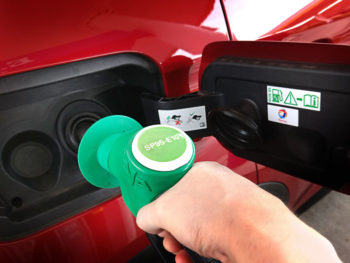Greener E10 fuel to become standard petrol grade from 2021
A consultation that could see the greener E10 petrol replace the current standard unleaded at UK fuel pumps from next year is currently underway.
According to the Government the initiative could result in CO2 savings of 750,00 tonnes – equivalent to taking up to 350,000 cars off the road each year – thanks to the higher 10% blend of bioethanol used in E10, up from the current 5% limit in E5. This could help it meet Net Zero.
It’s a move that’s been widely expected for some time, following a consultation and changes to the Renewable Transport Fuels Obligation (RTFO) as well as the Department for Transport’s rollout of new fuel labels.
Last year saw the APPG for British Bioethanol publish the final report on its Parliamentary Inquiry into the introduction of E10 as it called for the Government to accelerate the launch of the fuel in the UK, saying that such a move is a ‘no-brainer’.
The new consultation sets out proposals on introducing E10 petrol as the 95 octane ‘Premium’ grade and only keeping E5 petrol available in the higher octane ‘Super’ grade. It also launches a call for evidence on future transport biofuels policy.
The RAC has warned that the introduction of E10 could bring issues for drivers of older vehicles; as the RAC Foundation has pointed out, there could be as many as 600,000 vehicles on our roads that aren’t compatible with the fuel.
But such compatibility issues should not affect fleets – every new petrol car sold since 1 January 2011 has been required to be fully warranted to use E10.
However, fleets will may see a slight reduction in fuel economy. According to a report issued by the Low Carbon Vehicle Partnership (LowCVP), biothanol has a lower energy density than petrol and, consequently, the volumetric fuel consumption using E10 petrol is expected to be slightly (1.5%) more than E5 petrol.
In response, the LowCVP has previously said that fuel duty should be adapted to reflect the different energy content of E10, providing a price differential to E5 to encourage usage.
The LowCVP convened an expert group in 2017 which published a report on ‘Successfully deploying E10 petrol’. The report concluded that the introduction of petrol with a 10% bioethanol content (E10) would be one of the most cost-effective means of rapidly reducing carbon emissions from road transport currently available to the UK.
The group said that the introduction, however, needs to be thoroughly and carefully planned to ensure effective market transition.
The Government’s E10 consultation runs until 19 April 2020.


















